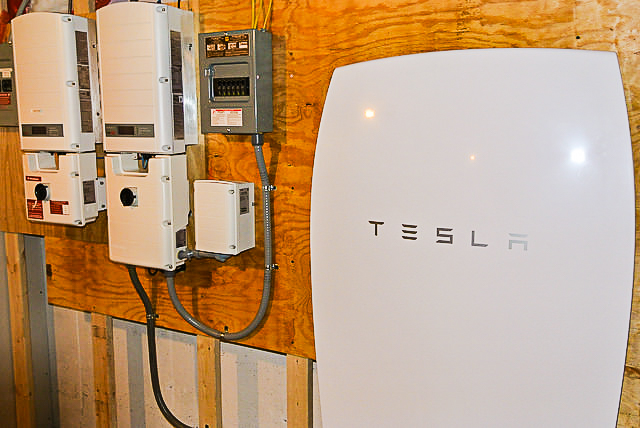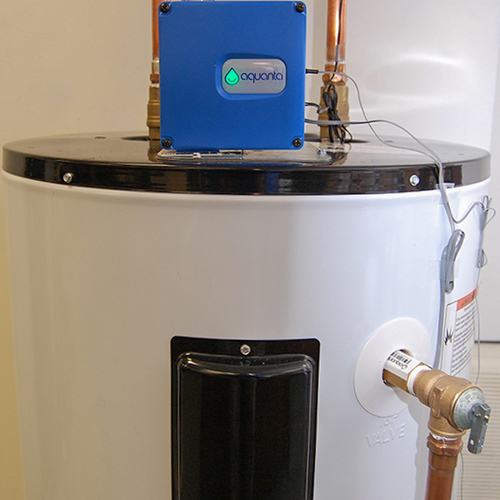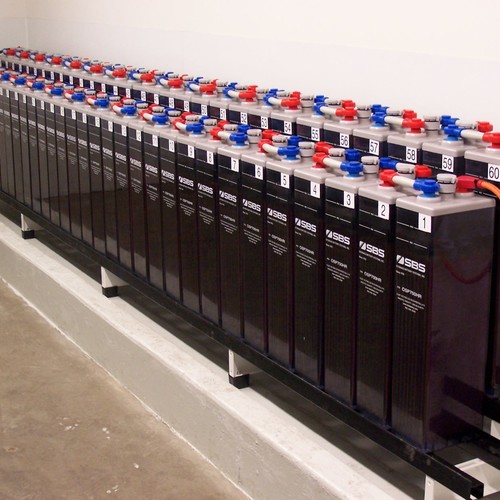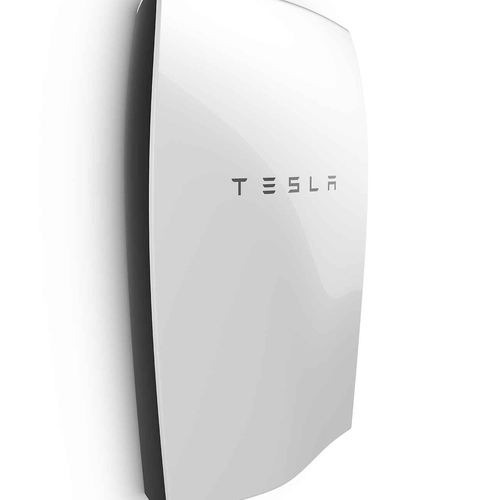
Image Credit: Green Mountain Power
Green Mountain Power says it is pleasantly surprised at the early interest in a new pilot program designed for customers who want the energy independence that comes with their own off-grid photovoltaic (PV) and battery storage systems without the maintenance headaches or upfront costs.
The Vermont utility says that its first-in-the-nation Off-Grid Package will help customers avoid the high costs of long power line extensions to homes far off the grid while simultaneously giving the utility a way of lowering costs for all consumers by whittling down the number of high-maintenance connections.
Customers who make the leap will get an energy audit, solar panels, battery storage, a generator, and related equipment to power their off-grid homes for a monthly rate that stays fixed for the life of the equipment. It’s part of a continuing effort on the part of the utility to help customers use less energy, especially fossil fuels, and reduce overall costs of the grid, according to Josh Castonguay, the utility’s chief innovation executive.
Green Mountain Power (GMP) has already rolled out its eHome program, and has disconnected buildings at a state park from the grid by substituting an off-grid system using solar panels and the Tesla Powerwall battery.
“Then we thought about taking it a step further,” he said. “Part of our energy transformation is to meet customers where they’re at in terms of what their desires are for energy, whether it’s an eHome-style full energy retrofit, or if the customer just wants to build off the grid but may not want to think about the system or maintain it or deal with it.”
“That’s where it started,” Castonguay continued. “Where we hope it goes is that we can do these systems in a way that targets customers where it’s a little more challenging to serve, similar to that state park, and transition customers to an off-grid system where it’s seamless to them with the same or increased level of reliability. But we’re able to lower our costs, which essentially flows to all our customers.”
How much will it cost?
In a filing with the Vermont Public Service Board, the utility said that approximate costs would range from $400 a month for a customer who used 400 kilowatt hours of electricity a month to $850 a month for a monthly consumption of 700 kWh a month. (According to the U.S. Energy Information Administration, the average residential customer in the U.S. used 901 kWh of electricity per month in 2015.)
The monthly fee to Green Mountain Power covers equipment costs and maintenance costs. One of the included services provided by the utility is necessary generator maintenance.
“GMP will look to standardize package sizing as much as possible, but to fit the needs of participating customers there will be variations in size and scope of each system,” the filing said.
Castonguay said that off-grid packages with a rated solar output of 5 kW to 7 kW could cost GMP $25,000 to $30,000, but costs could be much higher — up to $80,000 — for a very large home with high energy demands. Estimated monthly costs for off-grid consumers aren’t cheap, but Castonguay said it could easily cost a new residential customer $20,000 to $30,000 to run a lengthy line extension for connecting to the grid.
Greentech Media reports that GMP planned to work with Peck Electric on the first installations and would use inverters and control systems from Outback Power and batteries from both Aquion Energy and Tesla. Cellular connections would be used to monitor the systems remotely, and to make sure that home energy control system keeps consumption within the limits of the system.
GMP said that the Off-Grid Package is a way of coping with new financial pressures on traditional utility business models.
“The energy landscape is changing,” the utility said. “Traditional kilowatt-hour sales are eroding due to programs like net metering. If we do nothing, this would lead to path of significantly increasing rate pressure for customers over the next decade — as much as 10% to 15% per year by the mid 2020s… We see the Off-Grid Package as part of our energy future.”
The utility originally said that the pilot would be limited to a half-dozen customers, but Castonguay said that GMP would find a way to include anyone who was interested. Although no one expected a flood of calls, Castonguay said that the company had fielded eight to ten calls from potential customers in the first couple of days after the program was announced.
Weekly Newsletter
Get building science and energy efficiency advice, plus special offers, in your inbox.















6 Comments
Question for Martin
Martin. It's my understanding that you've lived off the grid for several decades. Does the Off-Grid Package strike you as a good value compared to a more traditional owner financed approach?
Response to Steve Knapp
Steve,
The cost of the package offered is almost undoubtedly higher than the cost would be for a home-brewed system. But the higher cost comes with a significant benefit: maintenance is included.
There are several questions I would ask, including:
Who owns the PV panels? At the end of 20 years, if the homeowner wants to discontinue the relationship with GMP, what happens to the panels? Does GMP remove them from the house and take them away, or does the homeowner get to keep them?
Finally, some of the information I've read about this program lead me to believe that GMP is promoting all-electric solutions, including the use of ductless minisplits, for off-grid homeowners. That's nuts. The idea that an off-grid house should heat with electricity in Vermont is misguided, as is the idea that an off-grid system needs to provide as much electricity as a grid-connected system. It doesn't, for a variety of reasons -- the main one being that off-grid electricity costs $1 per kWh.
micro-CHP?
Since they are installing a system with a generator, they might was well make it a micro-CHP system
http://www.ecopowermicrochp.com/overview.html
If the heat load is 24 kBTU/hr, they could produce half of that from the CHP heat, and the other half from a mini-split running on the generated electricity, with a fuel-to-heat net COP or efficiency of about 2.
Response to Charlie Sullivan
Charlie,
Lots of engineers have a love affair with combined heat and power (CHP) units, but they only make sense for large multifamily projects or large commercial buildings.
An off-grid house has a very low electrical load for most hours of the day. Unless our washing machine is on, we're only drawing about 200 watts or less at any given time. So we don't need a big engine to make electricity, except for two hours a day from mid-November to early February. When the sun comes out during these dark months, we don't need any generator at all.
If you are running a CHP engine for heat, the electricity will be mostly wasted.
In other words, the need for heat and the need for electricity aren't simultaneous, and the big expensive engine is a complicated piece of equipment trying to perform a simple task. It's like using a bulldozer to make a sandcastle.
CHP + Heat Pump
Martin,
While you are perfectly correct to call me out for being an engineer who is prone to fantasies about complex systems that are disasters in the real world, the off-grid configuration I was proposing isn't quite the same as what you are criticizing.
I should also be clear that I am not proposing this as a good overall design. I am only proposing it as a way to improve the situation if someone insists on an off-grid heat pump system.
So what I am proposing is a system with a CHP generator and one or more heat pumps. The generator essentially only runs when the heat pump runs. During that time, the electricity produced is equal to the electricity used by the heat pump(s). None is wasted. (If needed, a little extra electricity can be produced and can go into the battery to support the 200 W load when the heat pump is off.) The heat pump is sized for about half of the manual J requirement; the other half is produced by the generator. As a result, you get about twice the heat out of a gallon of fossil fuel that you'd get from an efficient boiler or furnace. That solves the problem that "the need for heat and the need for electricity aren't simultaneous."
You are right that this is an expensive and complex solution. But I think it is less expensive than trying to size the PV+battery system to support heat pumps in the winter, and we agree that it makes no sense to run a conventional generator to power a heat pump in the winter.
The sizing is somewhat of a problem, but not too bad. At minimum power, the Marathon system produces 13,000 BTU/h and 1.2 kW. At a COP of 3, that would power a heat pump producing 12,300 BTU/h. So the total heat delivered is 25.3 kBTU/h. That's within reason. For mild days, the PV + battery + heat pump might work, and for intermediate days, you could run the generator for an hour charging the battery and delivering 13 kBTU/hr, and then run the heat pump off the battery for a a few hours at 6,000 kBTU/hr.
The benefits would be mainly in producing lots of jobs for control engineers, with the side benefit of technicians getting overtime pay on cold winter nights when the bugs in the control algorithm show up, but there would be some energy benefits compared to the system GMP is proposing, and the complexity is not much greater.
Response to Charlie
Charlie,
Thumbs up and a smile to your last sentence: "The benefits would be mainly in producing lots of jobs for control engineers, with the side benefit of technicians getting overtime pay on cold winter nights when the bugs in the control algorithm show up..."
Log in or create an account to post a comment.
Sign up Log in